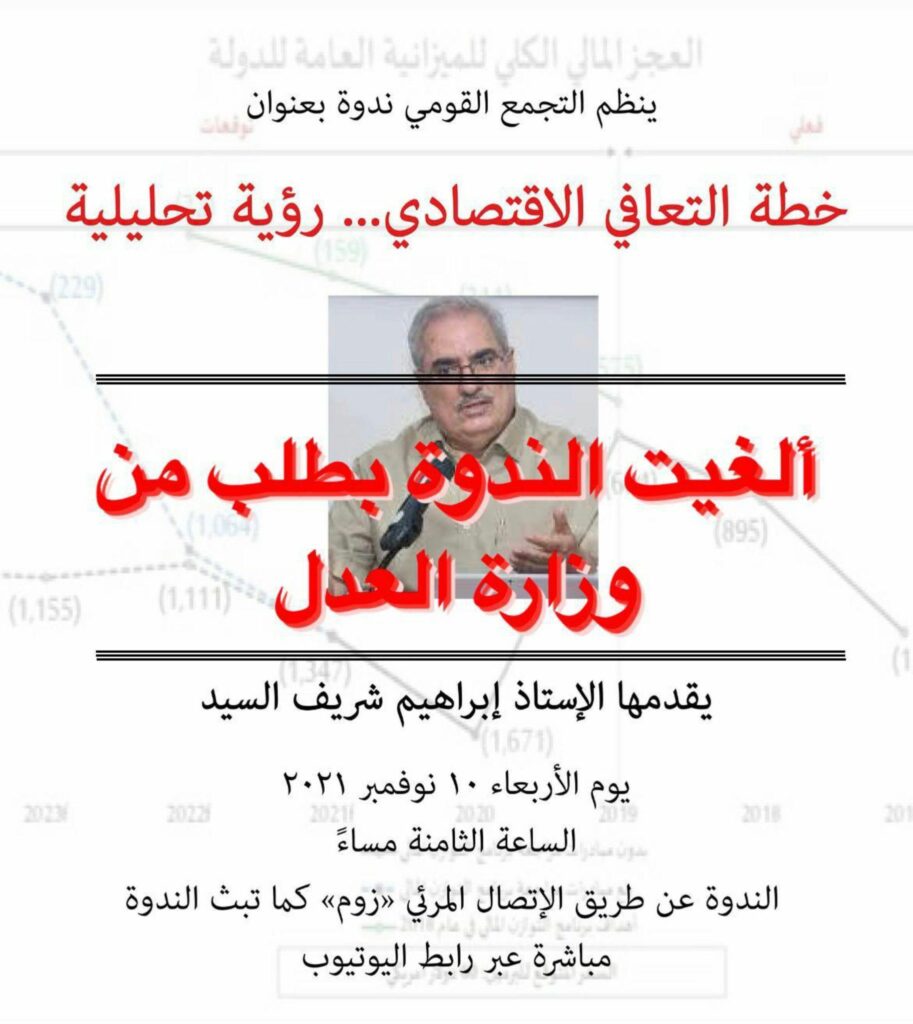Bahrain: Banning the Nationalist Democratic Assembly Symposium Contradicts Government Messages of Reform
On Wednesday, November 10, 2021, Bahrain’s Ministry of Justice arbitrarily banned a virtual seminar, entitled “Economic Recovery Plan: An Analytical Vision”. The event was organized by the Nationalist Democratic Assembly Society, a legally licensed political association, where the former leader of the National Democratic Action Society (Wa’ad) (a political association that was dissolved by the government in 2017), Ibrahim Sharif was supposed to participate. This is likely the reason for the ban, as the Bahraini government utilized the Ministry of Justice previously, on October 28, to cancel Sharif’s participation from the symposium, one day after a video surfaced of Sharif criticizing a lack of legislative and supervision powers in Bahraini parliament. The Nationalist Democratic Society’s Ba’athist politics are far more hardline and less popular than Sharif’s, who regards himself as a secular socialist, yet the event was only cancelled by the government when it became known Sharif would be speaking.
Ibrahim Sharif’s ban might be due to the harsh implementation of the amendments that were made to Law No. (25) of 2018 on the Exercise of Political Rights, where those who have been convicted of political crimes are prohibited from engaging in politics or participating in elections. The practical application of this politically motivated law is to isolate a broad category of citizens and prevent them from engaging in any form of expression in political affairs or running for boards of directors of civil society institutions. The law takes revenge on citizens labelled political opponents of the State, and the government uses it to stifle criticism and suppress citizens’ freedoms. This directly violates the International Bill of Human Rights and the Bahraini Constitution. In addition, the legislation exercises authority over civil society and licensed political societies to suppress their right to freedom of expression and freedom of speech, as happened with the Nationalist Democratic Society and Bahrain Democratic Youth Society.
These measures of political isolation are not the only means used by the Government of Bahrain to suppress basic freedoms. In May 2020, a remote seminar entitled “Normalization with the Zionist Enemy in the Gulf”, organized by the Bahrain Democratic Youth Society, was banned by the Ministry of Labor and Social Development. Moreover, in 2017, the Ministry of Labor and Social Development permanently closed the last independent newspaper in Bahrain, Al-Wasat. The Cybercrime Directorate of the Ministry of Interior has also summoned and interrogated bloggers and activists over posts they made on social media platforms. On May 30, 2019, the Ministry of Interior published a warning to citizens via Twitter, stating that following the social media platforms of “state opponents” is a crime. The current press law also allows the Ministry of Information to block websites by administrative decision, while the government has a monopoly on all media broadcasting outlets and newspapers in the country.
Salam for Democracy and Human Rights condemns Bahrain’s continued policy of silencing and prohibiting the use of cyberspace for content that is critical of the government. It is the last remaining means through which Bahrainis can criticize the performance of the government and its officials, including topics such as administrative and financial corruption. All legal articles and domestic legislation leading to the deprivation of political rights must be repealed due to their constitutional violation and violation of basic human rights stipulated in the Universal Declaration of Human Rights and its two international covenants. Salam DHR also urges the Government of Bahrain to provide a legal and regulatory environment that allows independent media and freedom of expression, and demands the release of all prisoners of conscience, who are incarcerated for exercising their freedom of speech and expression to demand rights and political partnership in Bahrain.


 العربية
العربية Français
Français Deutsch
Deutsch